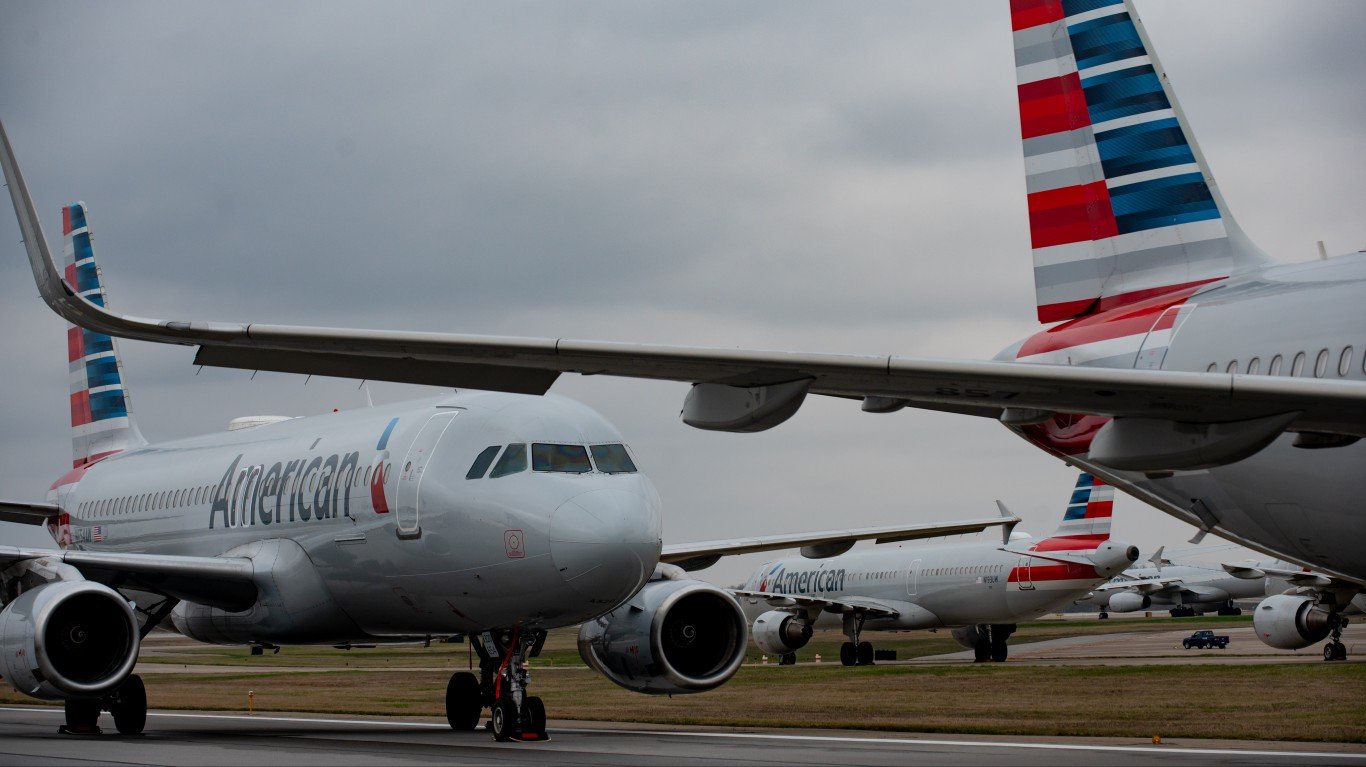

American Airlines Group Inc. (NASDAQ: AAL) said it may have to cut 19,000 workers after October 1. When U.S. airlines received $25 billion in March, it was with the stipulation that they keep their workforces intact until the date. After then, unfortunately, they are allowed to shed employees. American already had begun to cut sharply the number of people on its payrolls through buyouts and retirement. Its goal is said to be to let 40,000 people go in total. If the other large U.S. carriers cut similar portions of their workforces, the nationwide number easily could top 100,000.
[in-text-ad]
American employed over 100,000 people a year ago, more than Delta Air Lines Co. (NYSE: DAL) (91,000), United Airlines Holdings Inc. (NYSE: UAL) (99,000) Southwest Airlines Co. (NYSE: LUV) (61,000), Alaska Air Group Inc. (NYSE: ALK) (19,000) and JetBlue Airways Corp. (NASDAQ: JBLU) (16,000). That leaves out smaller carriers, in particular those that operate regionally. Each faces a wall similar to American’s. Travelers have stopped flying. There may be another wave of the COVID-19 pandemic. Flyers may not return in force until next year, at the earliest. Carriers do not have the balance sheets to weather a storm of this magnitude. Even if they did, no business in any industry would keep all its workers in the face of such a downturn.
The airline industry is an example of another shock U.S. companies have started to suffer once two things have begun to happen. Government aid is ending or has ended. The Paycheck Protection Program has not been renewed. And for many sectors, the economy has not gotten any better, nor will it. The tens of thousands of probable airline cuts are symptoms of a much wider problem.
Air travel won’t rebound anytime soon. Neither will the number of people who used to stay in hotels, eat in restaurants, go to movie theaters or a host of other things they have stopped doing as they limit their exposure to COVID-19. The U.S. carriers may cut 100,000 jobs. However, it will not be the end of the carnage among many other industries.
Essential Tips for Investing: Sponsored
A financial advisor can help you understand the advantages and disadvantages of investment properties. Finding a qualified financial advisor doesn’t have to be hard. SmartAsset’s free tool matches you with up to three financial advisors who serve your area, and you can interview your advisor matches at no cost to decide which one is right for you. If you’re ready to find an advisor who can help you achieve your financial goals, get started now.
Investing in real estate can diversify your portfolio. But expanding your horizons may add additional costs. If you’re an investor looking to minimize expenses, consider checking out online brokerages. They often offer low investment fees, helping you maximize your profit.
Thank you for reading! Have some feedback for us?
Contact the 24/7 Wall St. editorial team.



